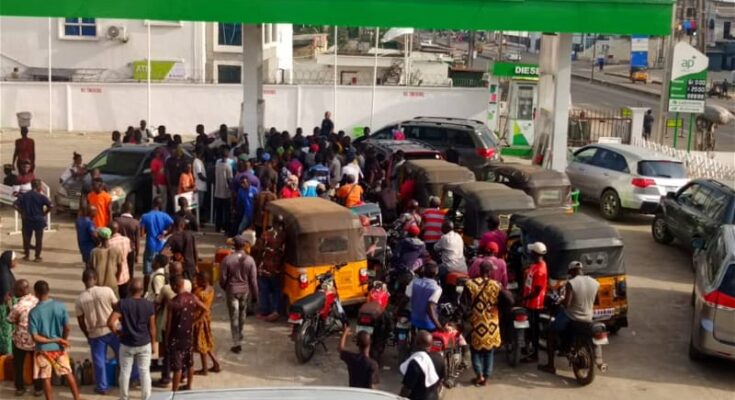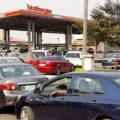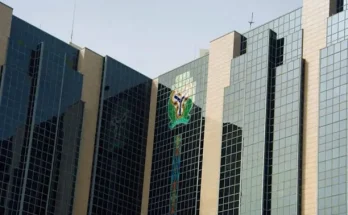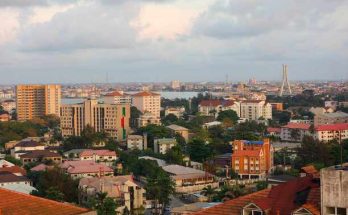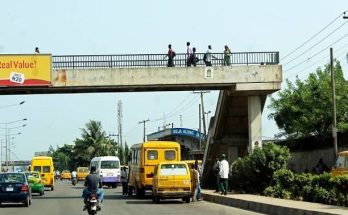OLUWAGBEMINIYI
For the past week, a terrible fuel scarcity has thrown Nigeria into confusion, dimming the joy of the Workers’ Day celebrations.
From the busy city of Lagos to the capital Abuja, the search for petrol has become a daily nightmare, making many wonder if there’s any reason for workers to celebrate.
Unending queues across the country
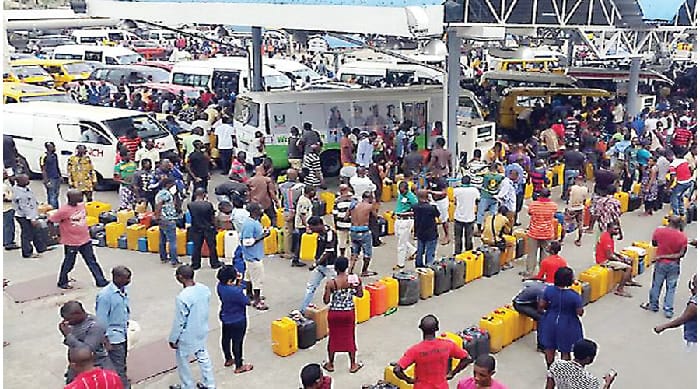
In major cities across the country, long lines at fuel stations have exposed Nigeria’s weak energy system and over-reliance on imported fuel. Drivers have been spending endless hours, sometimes days, under the scorching sun, desperately waiting to refuel their vehicles.
In Lagos, commuters like Mrs Peace have had to deal with very high transport fares. “The celebrations seem pointless when just getting to work has become a huge problem,” she says.
The scarcity has hit different businesses hard, with many facing disruptions and higher operating costs. With Nigeria’s unstable power supply, numerous businesses depend on generators, making the fuel crisis even tougher on them.
“We’re tired”: Nigerians cry out
Yet, the reality on the ground is far worse. In cities like Ilorin, some greedy fuel stations have been caught selling petrol at outrageously high prices, from 900 to 1,000 Naira per liter. “We don tire o ti su wa (we’re exhausted),” laments Mr. Jamiu, a tricycle driver who queued over six hours for 1,000 Naira fuel.
Workers are suffering too. Mrs Balogun, an Unifoam employee in Ilorin, vented her frustration, “I used to spend about 700 Naira on transport, but now I’m almost spending double that, and we can’t blame the drivers; the fuel is simply too costly. What is the government doing?”
What is the government saying?
As Nigerians cry out, authorities have been blaming supply disruptions and logistics issues as the main causes of the crisis. The Nigerian National Petroleum Company Limited (NNPC) has accused fuel companies of exploiting the situation to make more profits while promising to clear the queues by Wednesday, May 1st – a promise that has done little to calm the rising anger.
However, the Independent Petroleum Marketers Association of Nigeria (IPMAN) has warned that the fresh fuel scarcity could continue to make Nigerians groan for another two weeks. IPMAN says the lingering scarcity is due to a shortage of the product in the country caused by maintenance at many refineries in Europe.
Oil and gas experts have also spoken up, with Adetunji Oyebanji, CEO of 11 Plc, stating that the current petrol prices do not match real market costs, identifying it as a major driver of the scarcity.
As the nation battles this crisis, the irony is clear – on a day meant to honor workers’ rights and achievements, many Nigerians are struggling to do their basic jobs. The fuel scarcity has dampened the festivities, highlighting the challenges still ahead in building a fair society for all.

